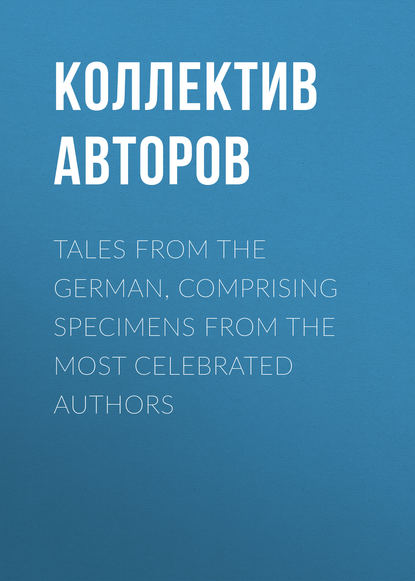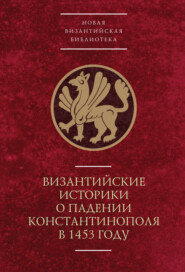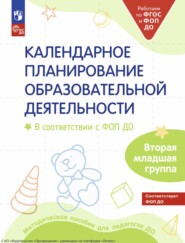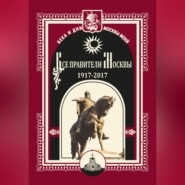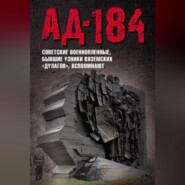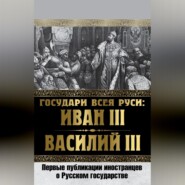По всем вопросам обращайтесь на: info@litportal.ru
(©) 2003-2024.
✖
Tales from the German, Comprising specimens from the most celebrated authors
Настройки чтения
Размер шрифта
Высота строк
Поля
"Ah, your worship," said Kohlhaas, detaching it from his neck, opening it, and taking out a little slip of paper fastened with a wafer, "there is something very peculiar about this case. It is about seven months ago, on the very day after my wife's burial, when I had set out from Kohlhaasenbrück, as perhaps you know, to seize the person of Squire von Tronka, who had done me much wrong, that for some negotiation, unknown to me, the electors of Saxony and Brandenburg had a meeting in Jüterboch, a market town, through which my way led me. When they had settled every thing according to their wishes, they went through the streets of the town, conversing in a friendly manner, that they might see the fair, which was held with due merriment. Presently they came to a gipsy woman, who sat upon a stool, and uttered prophesies to the people who surrounded her, out of an almanack.
"This woman they asked, jestingly, whether she had any thing pleasant to tell them. I, who had put up at an inn, with all my band, and chanced to be present at the spot when this occurrence took place, standing at the entrance to the church, could not hear, through the crowd, what the strange woman said to the electors. When the people whispered, laughingly, in each other's ears, that she would not communicate her science to any body, and crowded thickly together on account of the spectacle that was preparing, I got upon a bench, which had been hewn out in the entrance to the church, not so much because I was curious myself, as because I would make way for those that were. Scarcely had I, from this elevation, taken a full survey of the electors and the woman, who sat before them on the stool, and seemed to be scribbling something, than she suddenly raised herself on her crutches, and, looking round the people, fixed her eyes upon me, who had not spoken a single word to her, and had never cared for such sciences in my life.
"Pressing towards me, through the dense crowd, she said: 'Ah, if the gentleman wishes to know, he had better ask you.' Then, your worship, with her dry, bony hands she gave me this slip. All the people turned round to me, and I said, perfectly astonished, 'Why, mother – what sort of a present is this?' After all sorts of unintelligible stuff, among which, to my great surprise, I heard my own name, she replied, 'It is an amulet, thou horse-dealer, Kohlhaas, keep it well, it will one day save thy life.' And so saying, she vanished. Now!" continued Kohlhaas, good humouredly, "to tell the truth, sharply as matters have been going on in Dresden, they have not cost me my life; and as for Berlin, the future will show me how I get on there, and whether I shall come off well."
At these words the elector seated himself on a bench, and, although to the inquiry of the astonished lady, what was the matter with him, he answered, "Nothing, nothing at all" – he, nevertheless, fell senseless upon the ground, before she had time to run up to him and catch him in her arms.
The Knight von Malzahn, who, on some business or other, entered the room at this moment, said: "Good God, what ails the gentleman?" while the lady cried out, "Water, bring water!"
The huntsmen raised the elector from the ground and carried him to a bed in an adjoining room, and the consternation of all reached its height, when the chamberlain, who had been fetched by a page, declared, after many futile endeavours to restore the elector to his senses, that there were all the signs of apoplexy.
The seneschal, while the cup-bearer sent a messenger on horseback to Luckau to fetch a physician, caused the elector to be placed in a vehicle, as soon as he opened his eyes, and to be taken, slowly, to his hunting castle in the neighbourhood. The consequence of this journey was two fainting fits after his arrival at the castle, and it was late on the following morning, when the physician from Luckau had arrived, that he recovered in some degree, still with the decided symptoms of an impending nervous fever. As soon as he had regained his senses he raised himself in his bed, and his first inquiry was for Kohlhaas.
The chamberlain, who misunderstood his question, said, seizing his hand, that he need no longer trouble himself about this terrible man, since, as had been designed, he had remained at the farm at Dahme, guarded by the Brandenburg escort, after the sudden and incomprehensible mischance which had occurred. Assuring him of his warmest sympathy, and also that he had reproached his wife most bitterly for her unwarrantable heedlessness in bringing him in contact with the man, he asked what there was so strange and monstrous in the conversation to strike him thus.
The elector said he could only confess that the sight of a worthless slip of paper, worn by the man in a leaden case, had been the cause of the unpleasant occurrence. In explanation of this circumstance he uttered much which the chamberlain did not understand, suddenly assured him, as he pressed his hand, that the possession of this slip would be of the utmost importance, and finally entreated him to mount on horseback without delay, to ride to Dalheim, and to purchase the slip from Kohlhaas at any price.
The chamberlain, who had difficulty in concealing his embarrassment, represented to him, that if this slip was of any value to him, it would be absolutely necessary to conceal the fact from Kohlhaas, since, if he got a hint of it through any heedless expression, all the wealth of the elector would be insufficient to get it out of the hands of a fellow so insatiable in his vengeance. To calm him, he added that some other means must be devised, and that perhaps it would be possible to gain the slip to which he attached so much importance, by cunning and through the medium of a third indifferent party, as the criminal did not set any value on it.
The elector, wiping the perspiration from his forehead, asked whether it would not be possible with this intent to send to Dahme, and to delay the further transport of the horse-dealer until the slip, in some way or other, was secured.
The chamberlain, who could not trust his senses, replied that in all probability the horse-dealer had unfortunately left Dahme already, and was already over the boundary and on Brandenburg soil, where every endeavour to impede his progress, or to turn him back, must lead to the most unpleasant and lengthened difficulties – such difficulties, indeed, as it might be impossible to get over.
When the elector, with a gesture of utter despair, threw himself back on his cushion in silence, the chamberlain asked him what it was that the slip contained, and by what strange and inexplicable chance he knew that the contents concerned him.
Casting equivocal glances at the chamberlain, whose willingness to oblige him he doubted, the elector made no answer, but lay quite stiff, yet with heart uneasily beating, while his eyes were fixed on the corner of the handkerchief, which, immersed in thought, he held in his hands. All at once he ordered him to call into the chamber the hunting-page (Jagd-junker) Von Stein, an active and sharp-witted young gentleman, whom he had often employed on secret affairs, on the pretext that he had business to settle with him of quite a different nature.
After he had set forth the whole affair to this page, and had informed him of the importance of the slip, now in the possession of Kohlhaas, he asked him whether he was willing to earn an eternal claim to his friendship by getting this slip before Kohlhaas reached Berlin.
The page as soon as he, in some degree, understood the affair, strange as it was, declared that all his powers were at the service of the elector, whereupon the latter commissioned him to ride after Kohlhaas, and in case money would not suffice, as probably it would not, to offer him in a prudently managed discourse, life and liberty as the price of the slip; nay, if he insisted upon it, to supply him at once, though cautiously, with horses, people, and money, to assist him in escaping from the hands of the Brandenburg troopers who escorted him. The page, having obtained from the elector a written authority in his own hand, set off with some attendants, and not allowing his horses any breathing time, he had the good luck to overtake Kohlhaas at a village on the border, where, with the Knight von Malzahn and his five children, he was partaking of a dinner, that was spread before the door of a house in the open air. The Knight von Malzahn, to whom the page introduced himself as a foreigner, who wished to see the remarkable man on his journey, even anticipated his wishes, as he compelled him to sit down to the meal, at the same time introducing him to Kohlhaas. As the knight had affairs to mind, which caused him to absent himself every now and then, and the troopers were dining at a table on the other side of the house, the page soon found an opportunity of telling the horse-dealer who he was, and explaining the particular object of his mission.
The horse-dealer, who had already learned the name and rank of the person who had fainted in the farm-house at Dahme at the sight of the case, and who wanted nothing more to complete the astonishment which the discovery had caused, than an insight into the secrets of the case, which for many reasons he had determined not to open out of mere curiosity, – the horse-dealer, we say, mindful of the unhandsome and unprincely treatment which he had experienced at Dresden, in spite of his readiness to make every possible sacrifice, declared that he intended to keep the case. To the question of the page, what could induce him to utter so singular a refusal, when nothing less than life and liberty was offered him, Kohlhaas replied:
"Sir, if your sovereign came here in person and said to me, 'I will destroy myself with the troop of those who help to wield the sceptre;' although such destruction is the dearest wish of my soul – I would still refuse him the case, which is even more valuable to him than existence, and would say, 'to the scaffold you can bring me, but I can injure you, and I will.'" And immediately, with death in his face, he called for one of the troopers, ordering him to take a good portion of the repast which still remained in the dish. For the remainder of the hour, which he passed in the village, he never turned towards the page, but treated him, although he sat at the table, as if he was not present, until, when he ascended the cart, he turned round and gave him a farewell look.
The situation of the elector, when he learned the news, grew worse and worse; indeed to such a degree, that the physician, during three portentous days, was in the greatest anxiety for his life, which seemed attacked from more sides than one. However, by the force of his naturally strong constitution, after keeping his bed for several painfully passed weeks, he recovered sufficiently to be removed to a carriage, and thus, with an ample store of cushions and coverlets, to be conveyed to Dresden to the affairs of his government. As soon as he had reached the city he sent for Prince Christian of Misnia, and asked him how matters were going on with respect to the mission of the Councillor Eibenmeyer, who was to be sent to Vienna as attorney in the Kohlhaas affair, to complain to the emperor of the breach of the imperial peace. The prince told him that this councillor had set off to Vienna, in conformity with the instructions, which he had left when he went to Dahme, immediately after the arrival of the Jurist Zäuner, whom the Elector of Brandenburg had sent as attorney to Dresden, to prosecute the suit about the horses against the Squire Wenzel von Tronka.
The elector, who, deeply colouring, withdrew to his writing-table, expressed his astonishment at this haste, since he had, to his knowledge, declared that the departure of Eibenmeyer was to wait for nearer and more definite instructions, a reference to Dr. Luther, who had procured the amnesty for Kohlhaas, being first necessary. With an expression of suppressed anger, he turned over and over the documents that lay upon the table. The prince, after staring at him for some time in silence, said, that he should be sorry if he had not conducted this affair to the satisfaction of his sovereign, adding, that in the state-council not a word had been said about a reference to Dr. Luther; and that although perhaps at an earlier part of the proceedings it would have been proper to refer to this reverend gentleman, on account of his intercession for Kohlhaas, it was now no longer requisite, since the amnesty had already been broken in the eyes of the whole world, and Kohlhaas had been arrested, and delivered up to the Brandenburg tribunal for judgment and execution.
The elector admitted that the mistake in sending Eibenmeyer was not so great, but expressed his wish that he should not appear at Vienna in his official capacity of prosecutor till he had received further instructions, and told the prince to communicate this to him accordingly through an express. The prince replied that this command came unfortunately a day too late, since Eibenmeyer, according to a notice which had arrived that very day, had appeared in the quality of attorney, and had proceeded to bring the complaint before the state-chancery in Vienna.
When the elector asked with astonishment how this was possible in so short a time, he answered, that three weeks had already elapsed since Eibenmeyer's departure, and that by the instructions which he had received, it was incumbent upon him to despatch the business as soon as possible after his arrival at Vienna. The prince further remarked, that a delay would, under the circumstances, be so much the more unjustifiable, as the Brandenburg representative, Zäuner, was proceeding against Squire Wenzel von Tronka with the boldest energy, and had already moved the court, that the horses, as a preliminary measure, should be taken out of the hands of the flayer, with a view to their future recovery, and had succeeded in carrying this point in spite of all the objections of the opposite party.
The elector, ringing the bell, said, "Well, no matter!" and after putting some indifferent questions to the prince, such as "how matters stood in Dresden," and "what had been going on in his absence," he shook hands with him, unable any longer to conceal the state of his mind, and dismissed him. On the very same day he sent to him a written request for all the documents relating to the Kohlhaas affair, under the pretext that he would take the management of it into his own hands on account of its political importance. The thought of destroying the man from whom alone he could learn the mysteries of the slip was to him insupportable, so he addressed to the emperor a letter in his own hand, in which he requested him in the most pressing manner, for certain important reasons, which he would perhaps explain more definitely in a short time, to set aside the complaint which Eibenmeyer had brought against Kohlhaas, until some further conclusion had been arrived at.
The emperor, in a note which he despatched through the state chancery, replied that he was greatly astonished at the change in the elector's sentiments, which seemed to have occurred so suddenly, adding, that the information laid before him on the part of Saxony, made the matter of Kohlhaas an affair of the whole sacred Roman empire, that he, the emperor, as the head of that empire, was bound to appear as prosecutor in this suit with the House of Brandenburg; that now the court-assessor, Franz Müller, had gone to Berlin as imperial attorney, for the express purpose of bringing Kohlhaas to account there for a violation of the imperial peace, it would be impossible to set aside the complaint, and that therefore the affair must take its course according to the laws. The elector was completely cast down by this letter; and when, to his utter confusion, he shortly afterwards received private letters from Berlin announcing the commencement of the proceedings before the chamber-council, and stating that Kohlhaas, in spite of all the endeavours of his advocate, would probably end his days on a scaffold, the unhappy prince resolved to make one attempt more, and he therefore wrote a letter himself to the Elector of Brandenburg, begging for the horse-dealer's life. He pretended that the amnesty which had been promised to the man, would render improper the fulfilment of a capital sentence; assured him, that in spite of the apparent severity of the proceedings against Kohlhaas, it had never been his intention to put him to death; and stated how inconsolable he should be if the protection which seemed to be granted him from Berlin, should by an unexpected turn prove more to his disadvantage than if he had remained in Dresden, and the affair had been decided according to Saxon law.
The Elector of Brandenburg, who perceived much that was obscure and ambiguous in this request, replied by stating that the urgency with which the imperial advocate proceeded would not allow him to depart from the strict injunctions of the law to accede to his (Saxony's) wishes. At the same time he remarked that the anxiety of the Elector of Saxony in this matter seemed to be carried too far, since the complaint against Kohlhaas, which was now before the Berlin chamber-council, and which concerned the crimes pardoned in the amnesty, did not proceed from him who granted it, but from the head of the empire, who was not in any manner bound by it. He also impressed upon him how necessary it was to make a terrible example, seeing that the outrages of Nagelschmidt still continued, and with unparalleled audacity had advanced even to the borders of Brandenburg; and requested him, if he would pay no regard to these reasons, to address himself to his imperial majesty, since, if an edict was to be pronounced in favour of Kohlhaas, it could come from that quarter alone.
The elector, extremely grieved and vexed at all these futile attempts, fell into a new illness, and when one morning the chamberlain visited him, he showed him the letters which he had addressed to the courts of Vienna and Berlin, for the purpose of obtaining a reprieve for Kohlhaas, and thus at least of gaining time to possess himself of the slip which he had with him.
The chamberlain threw himself on his knees before him, and requested him by all that was dear and sacred to tell him what this slip contained.
The elector said, that he might bolt the room and sit down upon the bed, and after he had taken his hand, and pressed it to his heart with a sigh, he began as follows: "Your wife, as I understand, has already told you that the Elector of Brandenburg and I, on the third day of the meeting, which we had in Jüterboch, met a gipsy. When the elector, who is of sportive disposition, resolved by a jest to demolish in the sight of the people the fame of this extraordinary woman, whose art had been the subject of unseemly conversation at table, and asked her, on account of the prophecy which she was about to utter, to give him a sign that might be tested that very day, alleging that he could not otherwise believe what she said, were she the Roman sybil herself. The woman, taking a cursory view of us from head to foot, said that the sign would be this: that the great roebuck, which the gardener's son reared in the park, would meet us in the market where we stood before we left it. You must know that this roebuck, being intended for the Dresden kitchen, was kept under lock and bolt, in a partition fenced round with high laths, and shaded by the oaks of the park. As on account of other smaller game and birds the park and the garden besides were kept carefully closed, it was not easy to see how the animal, in accordance with the strange prediction, would come to the place where we stood. Nevertheless the elector, fearing some trick, and resolved to put to shame all that the woman might say, for the sake of the jest, sent to the castle, with orders that the roebuck should be killed at once, and got ready for the table at an early day. He then turned back to the woman, who had spoken about this matter aloud, and said: 'Now, what have you to tell me about the future?' The woman, looking into his hand said: 'Hail to my lord the elector! Your grace will long reign, the house from which thou descendest will long endure, and thy descendants will become great and glorious, and attain power above all the princes and lords of the world.' The elector, after a pause, during which he eyed the woman thoughtfully, said half aside, and stepping up to me, that he was almost sorry he had sent a messenger to annihilate the prophecy, and when the money, from the hands of the knights who followed him, poured into the woman's lap, amid loud huzzas, he asked her, putting his hand in his pocket, and giving a piece of gold, whether the greeting she would give to me had such a silvery sound as his own. The woman, after she had opened a box which stood beside her, had very deliberately put the money in it, arranging it according to description and quantity, and had closed the lid again, held her hand before the sun as if the light annoyed her, and looked at me. When I repeated the question, and said jestingly to the elector, while she examined my hand, 'It seems that she has nothing very pleasant to tell me,' she seized her crutch, rose slowly from her stool, and approaching me with hands mysteriously held out, whispered distinctly into my ear, 'No!' – 'So!' said I, somewhat confused, and I receded a step back from the figure, who with a glance as cold and lifeless as that from eyes of marble, again seated herself on the stool which stood behind her. 'Pray from what side does danger threaten my house?' The woman taking up a bit of charcoal and a slip of paper, and crossing her knees, asked me whether she should write it down; and when I, with some confusion, because under the circumstances there was nothing else left to do, answered 'Yes, do so,' she replied: 'Very good, I will write down three things – the name of the last ruler of thy house, the year when he will lose his kingdom, and the name of him who will take it by force of arms.' Having finished her task in the sight of the whole mob, she fastened together the slip with a wafer, which she moistened with her withered mouth and pressed upon it a leaden ring which she wore upon her middle finger. I was curious beyond expression, as you may easily conceive, to take the slip, but she said: 'By no means, your highness,' adding as she turned round and raised one of her crutches, 'from that man yonder, who with the plumed hat is standing behind all the people on the bench in the entrance of the church, you may get the paper if you choose.' And at once, while I was standing perfectly speechless with astonishment, and had not rightly made out what she said, she left me, and packing up the box which stood behind her and flinging it over her back, mingled with the surrounding crowd, so that I was unable to see her. It was a great consolation to me at this moment that the knight, whom the elector had sent to the castle, now returned and told him laughing, that the roebuck had been killed and dragged into the kitchen by two hunters before his eyes.
"The elector, merrily putting his arm into mine, with the intention of leading me from the spot, said: 'Good! the prophecy turns out to be a mere common-place trick, not worth the time and money which it has cost us.' But how great was our astonishment, when, at the very time he was speaking these words, a cry was raised, and all eyes were turned towards a great butcher's dog which came running from the castle-court, and which, having seized the roebuck in the kitchen, as good spoil, had borne it off by the nape of the neck, and now dropped it about three paces from us, followed by a troop of servants, male and female. Thus was the woman's prophecy, which she had uttered as a guarantee for all the rest that she predicted, completely fulfilled, as the roebuck had indeed met us in the marketplace, although it was dead. The lightning which falls from heaven on a winter's day, cannot strike with more annihilating effect than that which this sight produced on me; and my first attempt, after I had freed myself from the persons about me, was to find out the man with the plumed hat, whom the woman had designated; but although my people were employed for three days uninterruptedly, in seeking information, not one of them was in a condition to give me the slightest intelligence on the subject. Now, friend Conrad, a few weeks ago, in the farm at Dahme, I saw the man with my own eyes."
Having finished this narrative, the elector let the chamberlain's hand fall, and sank back on his couch, wiping off the perspiration. The chamberlain, who thought every attempt to oppose or correct the elector's view of the case would be fruitless, entreated him to try some plan to obtain possession of the slip, and then to leave the fellow to his fate; but the elector replied, that he could see no plan at all, although the thought of going without the paper, and of seeing all knowledge of it perish with Kohlhaas, made him almost desperate. To his friend's question, whether he had made any efforts to discover the gipsy herself, he answered that the government (Gubernium), in pursuance of a command which he had sent forth under a false pretext, had in vain sought for the woman to that day, in all the public places in the electorate, while, from other reasons which he declined to communicate more explicitly, he expressed his doubts whether she was to be found in Saxony. It chanced that the chamberlain wished to travel to Berlin for the sake of some considerable property in the Neumark, to which his wife had become entitled by the bequest of the High Chancellor Kallheim, who died soon after he was displaced; and, therefore, as he really was much attached to the elector, he asked him, after a short deliberation, whether he would let him act quite at liberty in this matter.
The elector, pressing the chamberlain's hand with warmth against his breast, answered: "Consider that you are myself, and get the paper;" and, therefore, the chamberlain, having entrusted his office to other hands, hastened his journey by a day or two, and, leaving his wife behind, set off for Berlin, accompanied only by some servants.
Kohlhaas, who, as we have already said, had in the meanwhile arrived at Berlin, and by the special order of the elector had been put in a state prison, made as comfortable as possible for the reception of him and his five children, was, immediately after the appearance of the imperial attorney from Vienna, brought before the chamber council charged with a breach of the imperial peace. Although he said, in answer, that he could not be prosecuted for his armed attack in Saxony, and the violence he had there committed, by virtue of the agreement made with the Elector of Saxony, at Lützen, he was informed that of that agreement the emperor, whose attorney conducted this complaint, could take no cognizance. When the matter was explained to him, and he heard, besides, with reference to his affair at Dresden, that he would have ample justice against Squire Wenzel von Tronka, he readily submitted. The very day on which the chamberlain arrived, sentence was passed against Kohlhaas, and he was condemned to be put to death with the sword; – a sentence which, seeing how complicated was the state of affairs, no one believed would be executed, notwithstanding its mildness; nay, the whole city, knowing the good feeling of the elector towards Kohlhaas, firmly hoped that the capital punishment, by a special edict, would be commuted into a long and severe imprisonment.
The chamberlain seeing at once that no time was to be lost, if he would fulfil his sovereign's commission, went to work, by appearing one morning, sedulously attired in his usual court-dress, before Kohlhaas, who was innocently watching the passers-by from the window of his prison. Concluding, from a sudden movement of his head, that the horse-dealer had perceived him, and particularly observing, with great delight, how the latter clutched, involuntarily, at the part of his breast, where the case was situated, he judged, that what had passed in the mind of Kohlhaas at that moment, was a sufficient preparation to advance one step further in the attempt to gain possession of the paper.
He, therefore, called to him an old rag-woman, who was hobbling about on crutches, and whom he had observed in the streets of Berlin among a host of others, who were trafficking in the same commodity. This woman, in age and attire seemed to bear a pretty close resemblance to the one whom his elector had described, and as he thought that Kohlhaas would have no clear recollection of the features of the gipsy, who had only appeared for a moment when she gave him the case, he resolved to pass off this old woman for the other one, and if possible to let her take the part of the gipsy before Kohlhaas. To put her in a proper position to play this part, he informed her, circumstantially, of all that had passed between the two electors and the gipsy at Jüterboch, not forgetting to tell her the three mysterious articles contained in the paper, as he did not know how far the gipsy might have gone in her explanations to Kohlhaas. After explaining to her what she must let fall in an incoherent or unintelligible manner, for the sake of certain plans that had been devised to obtain the paper, either by force or stratagem – a matter of great importance to the Saxon court – he charged her to ask Kohlhaas for it, under the pretext of keeping it for a few eventful days, as it was no longer safe in his possession. The woman, on the promise of a considerable reward, part of which the chamberlain, at her request, was forced to give beforehand, at once undertook to perform the required office; and as the mother of the man, Herse, who had fallen at Mühlberg, sometimes visited Kohlhaas, with the permission of the government, and this woman had been acquainted with her for some months, she succeeded in visiting Kohlhaas at an early day, with the help of a small present to the gaoler.
Kohlhaas, as soon as she entered, thought that by the seal-ring, which she wore on her finger, and the coral chain which hung from her neck, he recognised the old gipsy who had given him the can at Jüterboch. Indeed, as probability is not always on the side of truth, so was it here; for something happened which we certainly record, but which every one who chooses is at liberty to doubt. The fact is, the chamberlain had committed the most monstrous blunder, the old woman whom he had picked up in the streets of Berlin to imitate the gipsy, being no other than the mysterious gipsy herself whom he wished to be imitated. The woman leaning on her crutches, and patting the cheeks of the children, who, struck by her strange aspect, clung to their father, told him that she had for some time left Saxony for Brandenburg, and in consequence of a heedless question asked by the chamberlain in the streets of Berlin, about the gipsy who was in Jüterboch in the spring of the past year, had at once hurried to him, and under a false name had offered herself for the office which he wished to see fulfilled.
The horse-dealer remarked a singular likeness between this woman and his deceased wife Lisbeth: indeed he could almost have asked her if she were not her grandmother; for not only did her features, her hands, which, bony as they were, were still beautiful, and especially the use which she made of these while talking, remind him of Lisbeth most forcibly, but even a mole by which his wife's neck was marked, was on the gipsy's neck also.
Hence, amid strangely conflicting thoughts, he compelled her to take a seat, and asked her what possible business of the chamberlain's could bring her to him.
The woman, while Kohlhaas's old dog went sniffing about her knees, and wagged his tail while she patted him, announced that the commission which the chamberlain had given her, was to tell him how the paper contained a mysterious answer to three questions of the utmost importance to the Saxon court, to warn him against an emissary who was at Berlin, with the design of taking it, and to ask for the paper herself, under the pretext that it was no more safe in his own bosom. The real design of her coming was, however, to tell him that the threat of depriving him of the paper, by force or cunning, was completely idle, that he had not the least cause to feel any apprehension about it, under the protection of the Elector of Brandenburg – nay, that the paper was much safer with him than with her, and that he should take great care not to lose it, by delivering it to any one under any pretext whatever. However, she added by saying, that she thought it prudent to use the paper for the purpose for which she had given it to him at the Jüterboch fair, to listen to the offer which had been made to him on the borders by the page, von Stein, and to give the paper, which could be of no further use to him, to the Elector of Saxony, in exchange for life and liberty.
Kohlhaas, who exulted in the power which was given him, of mortally wounding his enemy's heel, at the very moment when it trampled him in the dust, replied, "Not for the world, good mother; not for the world!" and pressing the old woman's hand, only desired to know, what were the answers to the important questions contained in the paper.
The woman, taking in her lap the youngest child, who was crouching down at her feet, said, "No – not for the world, Kohlhaas the horse-dealer; but for the sake of this pretty little fair-haired boy." So saying, she smiled at him, embraced him, and kissed him; while he stared at her with all his might, and gave him with her dry hands an apple, which she carried in her pocket.
Kohlhaas said, in some confusion, that even the children, if they were old enough, would commend him for what he had done, and that he could not do any thing more serviceable for them and their posterity than keep the paper. He asked, besides, who, after the experience he had already made, would secure him against fresh deception, and whether he might not sacrifice the paper to the elector, just as uselessly, as he had formerly sacrificed the troop which he collected at Lützen. "With him who has once broken his word," said he, "I have nothing more to do, and nothing, good mother, but your demand, definitively and unequivocally expressed, will cause me to part with the slip by which, in such a remarkable manner, satisfaction is given me for all that I have suffered."
The woman, setting the child down upon the ground, said, that he was right in many respects, and could do and suffer what he pleased; and, taking her crutch again in her hand, prepared to go.
Kohlhaas repeated his question respecting the contents of the strange paper; and when she answered him hastily, that he might open it, if only out of curiosity, he wished to be informed about a thousand things more before she quitted him; such as who she was; how she acquired her science; why she had refused to give the wonderful paper to the elector, for whom it was written, and had just selected him, who had never cared about her science, among so many thousand persons.
At this very moment a noise was heard, made by some police officers, who were coming up stairs, and the woman, who seemed suddenly afraid lest she should be found by them in these apartments, answered: "Farewell till we meet again, Kohlhaas! When we meet again, you shall have knowledge of all this." Turning towards the door, she cried, "Good-bye, children, good-bye!" and kissing the little folks one after the other, she departed.
In the meanwhile the Elector of Saxony, entirely given up to his melancholy thoughts, had summoned two astrologers named Oldenholm and Olearius, who then stood in high repute in Saxony, and had consulted them as to the contents of the mysterious paper, which was of such high import to himself and the whole race of his posterity. When these men, after a deep inquiry, which had continued for three days in the castle at Dresden, could not agree whether the prophecy referred to distant ages or to the present time, while perhaps the crown of Poland, the relations with which were so warlike, might be pointed at, – the uneasiness, not to say the despair of the unhappy prince, far from being lessened by the learned dispute, was rendered more acute, and that to a degree perfectly insupportable. About the same time, the chamberlain charged his wife, who was on the point of following him to Berlin, to point out to the elector before her departure, how doubtful, after the failure of the attempt he had made with the old woman, whom he had never seen since – how doubtful was the hope of obtaining the paper now in the possession of Kohlhaas, since the sentence of death had already been signed by the Elector of Brandenburg after a careful examination of the documents, and the execution was already appointed for the Monday after Palm-Sunday.
At this intelligence, the Elector of Saxony, whose heart was rent with grief and remorse, shut himself up in his room for two days, during which, being weary of his life, he tasted no food. On the third day, he suddenly disappeared from Dresden, giving a short notice to the Gubernium that he was going to the Prince of Dessau to hunt. Where he actually went, and whether he did turn to Dessau, we must leave undecided, since the chronicles from the comparison of which we obtain our information, are singularly contradictory upon this point. So much is certain, that the Prince of Dessau, unable to hunt, lay sick at this time, with his uncle, Duke Henry, in Brunswick, and that the Lady Heloise on the evening of the following day, accompanied by a Count Königstein, whom she called her cousin, entered the room of her husband, the chamberlain.
In the meantime, the sentence of death was read to Kohlhaas at the elector's request, and the papers relating to his property, which had been refused him at Dresden, were restored to him. When the councillors, whom the tribunal had sent to him, asked him how his property should be disposed of after his death, he prepared a will in favour of his children, with the assistance of a notary, and appointed his good friend the farmer at Kohlhaasenbrück their guardian. Nothing could equal the peace and contentment of his last days, for by a special order of the elector, the prison in which he was kept was thrown open, and a free approach to him was granted to all his friends, of whom many resided in the city. He had the further satisfaction of seeing the divine, Jacob Freysing, as a delegate from Doctor Luther, enter his dungeon, with a letter in Luther's own hand (which was doubtless very remarkable, but has since been lost), and of receiving the holy sacrament from the hands of this reverend gentleman, in the presence of two deans of Brandenburg.
At last the portentous Monday arrived, on which he was to atone to the world for his too hasty attempt to procure justice, and still the city was in general commotion, not being able to give up the hope that some decree would yet come to save him. Accompanied by a strong guard, and with his two boys in his arms – a favour he had expressly asked at the bar of the tribunal – he was stepping from the gate of his prison, led by Jacob Freysing, when, through the midst of a mournful throng of acquaintance who shook hands with him and bade him farewell, the castellan of the electoral castle pressed forward to him with a disturbed countenance, and gave him a note which he said he had received from an old woman. Kohlhaas, while he looked upon the man, who was little known to him, with astonishment, opened the note, the seal of which, impressed on a wafer, reminded him of the well-known gipsy. Who can describe his astonishment when he read as follows:
"KOHLHAAS, – The Elector of Saxony is in Berlin. He is gone before thee to the place of execution; and thou mayest know him, if, indeed, it concerns thee, by a hat with blue and white feathers. I need not tell thee the purpose for which he comes. As soon as thou art buried, he will dig up the case, and have the paper opened which it contains.
"THY ELIZABETH."





